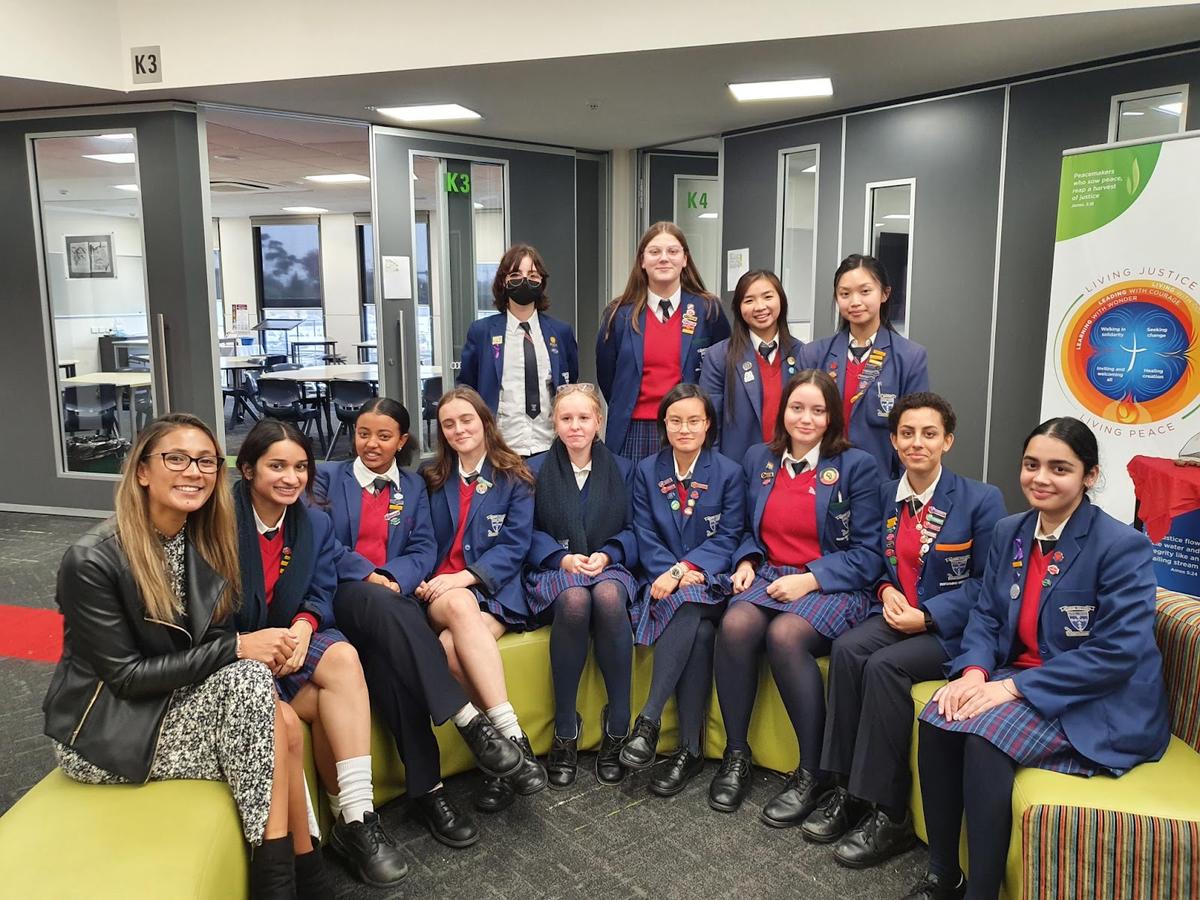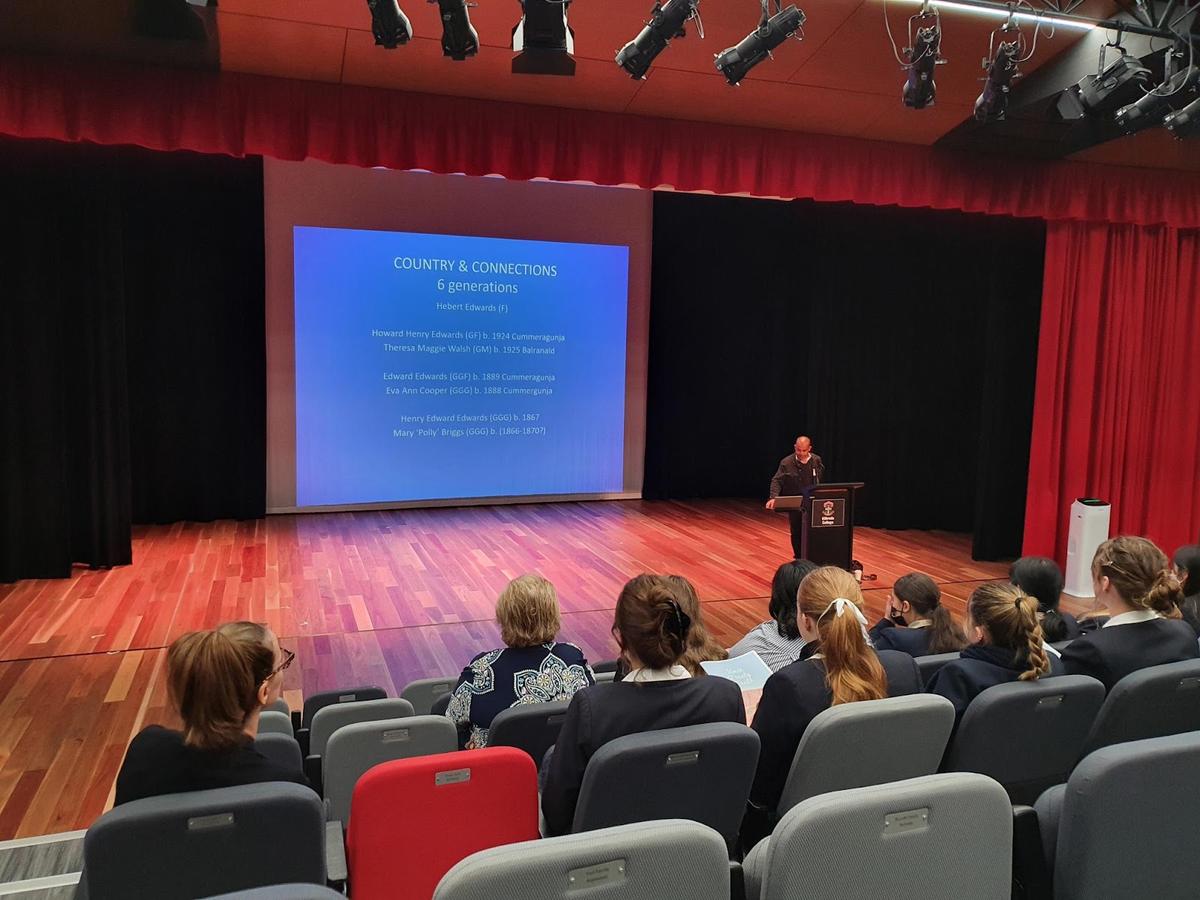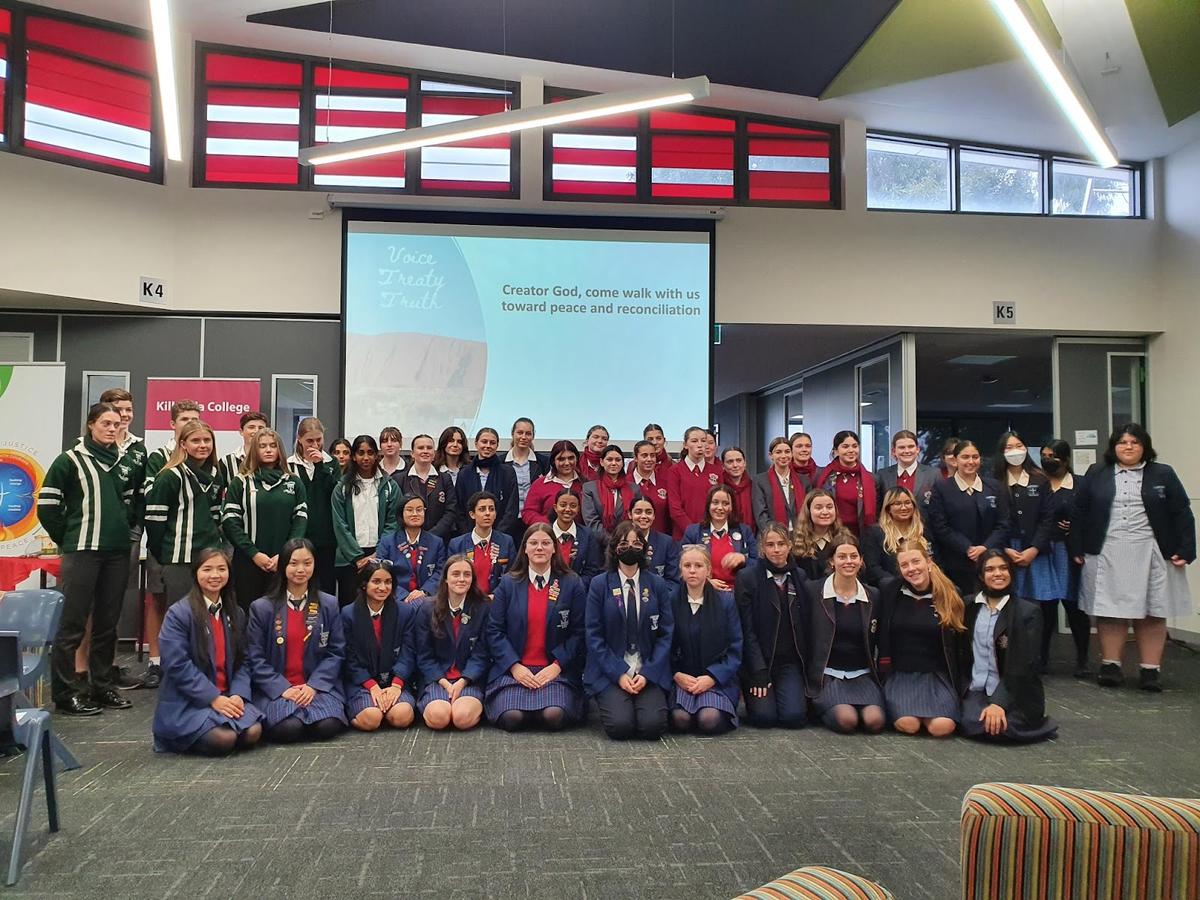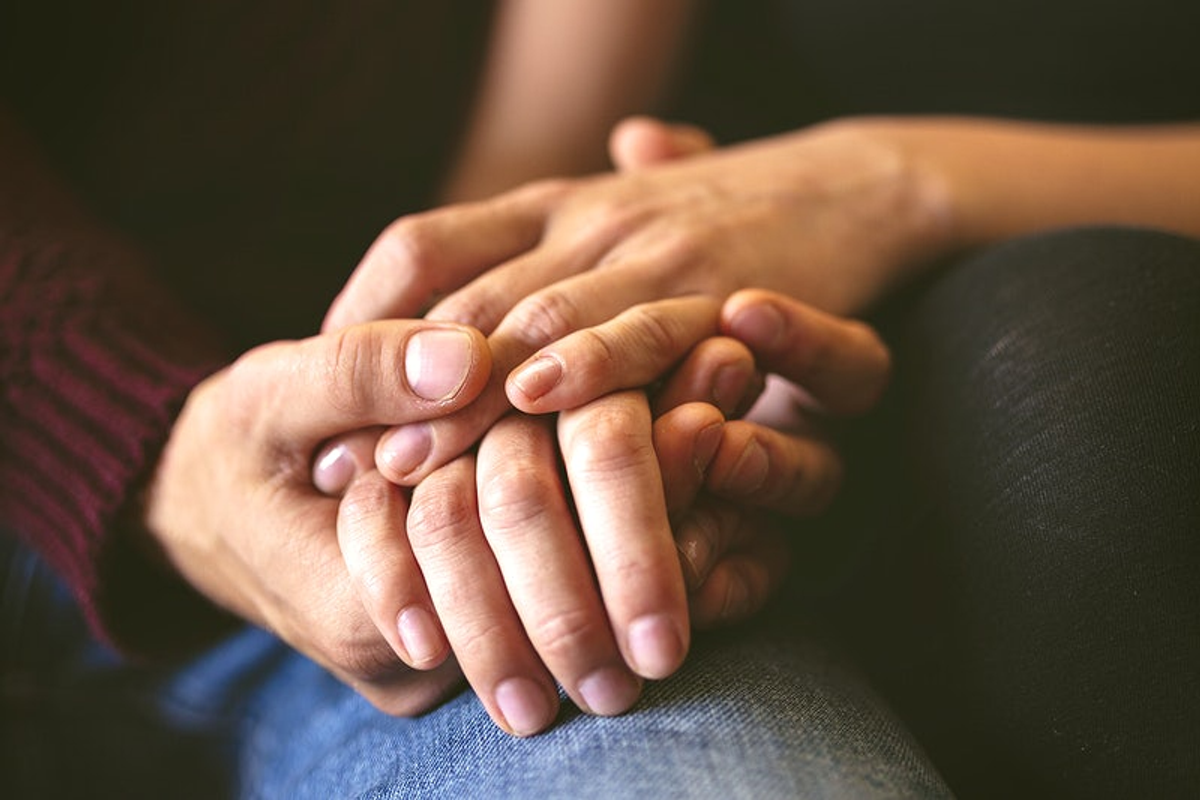Faith and Mission

Justice Seminar 13th of May
On the 13 May the Justice and Democracy Forum went on an excursion to Kilbreda College to partake in a seminar with other schools from Kildare Ministries. The aim of the day was to learn about some of the issues that Indigenous Australians face and how we can and need to prevent it from happening. In the first session we listened to a guest speaker named Adam Margennis. Adam spoke to us about his time growing up as an Indigenous man in Australia. He shared his story about being adopted, what it was like growing up in a predominantly white community and how he was able to reconnect with his heritage. Adam shared his personal stories of discrimination and the times he was treated unfairly based on his Indigenous heritage.
In the second session, each student was placed into groups with others from different schools. Within the groups we were assigned to read parts of a Kildare Ministries document that shares the unheard voices, opinions, ideas and truths about and from the Indigenous people of Australia.
We had a strong focus on the fact that Australia is one of few nations who do not have a treaty that acknowledge its First Nations people. After reading the document, we came together with the everyone what they got from it.
What we need to do to move forward is:
- Advocate for a treaty, this will allow any laws being made about Aboriginal people need to be passed through Aboriginal leaders first
- Acknowledge that Aboriginals are the owners of this land and have cared for it, creating deep connections together for over 60,000 years.
- Realise that we as non indigenous people have taken so much away from the land and have destroyed it in 234 years.
At the end of the day, the Marian College Justice and Democracy Forum was able to spend some time debriefing on what we had heard and learnt, and how we can incorporate it into the planning of Reconciliation Week 2022 and beyond.
Where do you see a lack of compassion?
Uncompassionate means indifferent or uncaring about the way other people feel. Lack of compassion is a growing concern in society today, starting from someone with low empathy who may joke about an individual’s emotions or circumstances or not listen or care about that individual’s problem.
Being uncompassionate is not following the teachings in the Bible, it reveals that empathy is important to living in community. Our greatest example of compassion in the Bible is our Heavenly Father. Psalm 86:15 says, "But you, Lord, are a compassionate and gracious God, slow to anger, abounding in love and faithfulness." Several times in God’s Word, we see the image of God protecting the Israelites in the shadow of His wings, like a mother bird protecting her hatchlings. God comforts his people with compassion which is infinite and eternal, this however is not portrayed in today’s world. Vaishnavi Bodla
How can we enact compassion in our lives?
In order to enact compassion, you must have the courage to take the next step from empathy. You must be inspired to want to help others and bring about a positive change. Acts of compassion do not have to be enormous, but instead small yet meaningful everyday actions. This can be as simple as listening actively to someone who is going through a difficult time, giving up your seat for an elderly person, participating in protests, helping someone who has lost an item or checking in on your family and friends. No matter how small an action may seem, any act of compassion can bring about a positive change in one’s life. How will you enact compassion in your life? Cindy Nguyen
Caritas - Who are they? What do they do?
Caritas is an international organization associated with the Australian Catholic Church. Caritas’ goals are to help protect human dignity and empower social justice through aiding communities within Australia and overseas. Caritas carry out their mission following their core values of hope, support and compassion. Caritas has a long history of supporting and advocating for communities and tackling key issues such as inequality and poverty. They aid these communities by listening to their concerns and building programs that will support the communities sustainably in the long term, by providing important services such as education, healthcare, basic necessities and building necessary infrastructure. Bettina Dy





